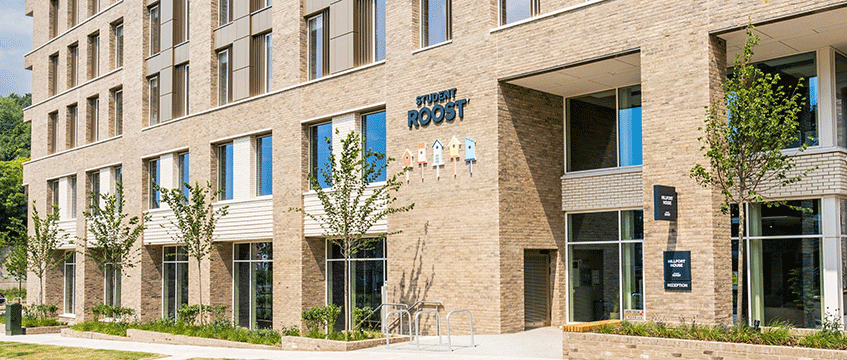Rental growth for UK student accommodation is set to reach 4-6% this year before settling to 3-5% for the 2026/27 academic year, according to Colliers.
The agent’s latest Student Accommodation Snapshot said the increase is being driven by slowing supply and growing demand. The market will continue to be affected over the next two years as the student population rises and the pipeline for developments stalls.
Between 2014 and 2023, undergraduate acceptances increased 8.2%, while those for postgraduates grew by 52%. International students being accepted for undergraduate study in the UK increased by 26%, according to Colliers.
The agent said £3.3bn was invested in the UK PBSA sector in 2023, a decline from £6.7bn in 2022 which was boosted by Greystar Real Estate Partners and GIC acquiring the £3.3bn Student Roost portfolio.
Universities diversify income
Colliers found that an increasing number of universities in the UK are diversifying their revenue streams in a bid to reduce the risk from fee income volatility. Income from intellectual property, including sale of shares in spin-offs, increased by 85%, totalling £132m between 2014/15 and 2022/23.
Regeneration and development projects were the second fastest growing income stream. It grew by 63%, representing an increase of £129m. This can include the universities investing their resources and time into a local project or redevelopment initiative.
Sara Lindblom, research analyst in the operational real estate research team at Colliers, said: “Many higher education providers are reliant on private developers for the provision of student accommodation to keep up with increasing enrolment numbers. However, with the ongoing macro-economic headwinds including high construction costs and interest rates, the levels of new stock coming online is likely to be restricted.”
Lee Layton, head of operational real estate research at Colliers, added: “A great deal of higher education providers have actively diversified their revenue streams in recent years to reduce their reliance on tuition fees and become more balanced businesses for their long-term sustainability. Many do this by forging links with local businesses, commercially ‘working’ land holdings and taking equity positions in start-ups and spin-off companies.”
Send feedback to Akanksha Soni
Follow Estates Gazette











